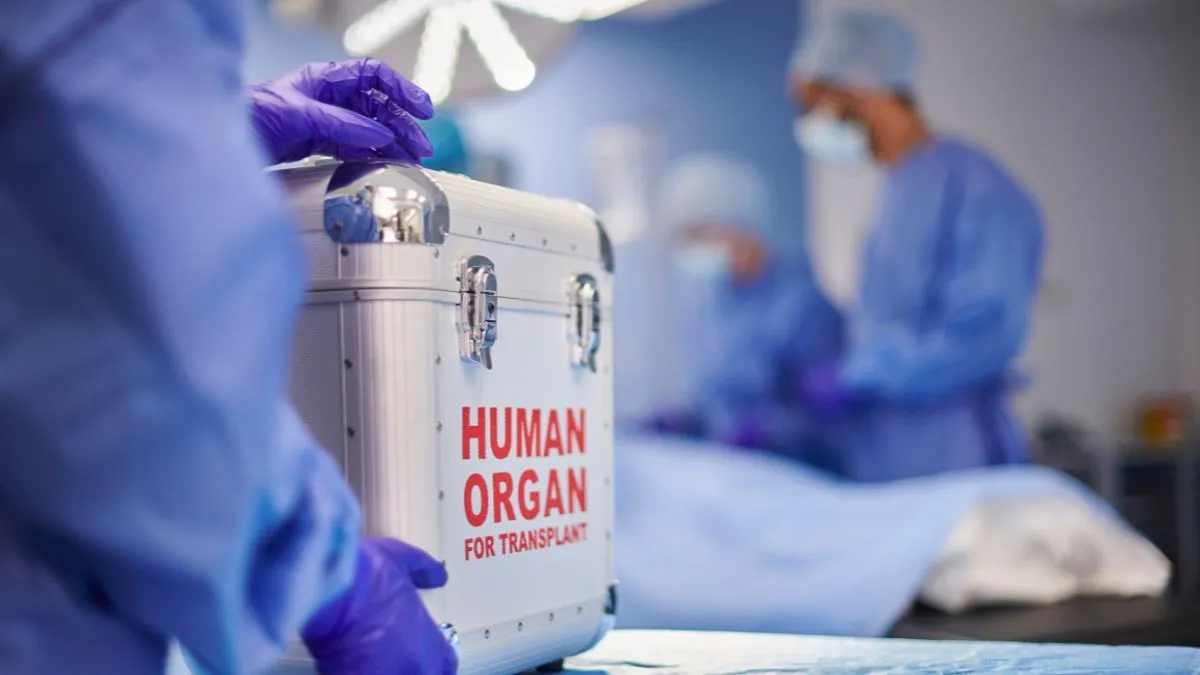
Every eight minutes, a new name is added to India’s transplant waiting list. Every day, at least thirteen patients die waiting for an organ that never arrives. According to the Ministry of Health and Family Welfare, India needs an estimated 175,000 kidney transplants, 50,000 liver transplants, plus heart, lung, and 2,500 pancreas transplants annually. Yet, the organ donation rate has remained stable at less than 1 per million population (PMP) from 2013 till date, far from the estimated 124 PMP needed for self-sufficiency. That’s less than 4% of the demand, not because of a lack of medical ability, but due to a crisis of awareness, infrastructure, and urgency.
This article is authored by Ms Anika Parashar, Founder of ORGAN India.
Organ donation is one of the most profound acts of humanity, capable of saving up to eight lives from a single donor and improving many more through tissue donation. Yet, India’s deceased donation rate stands at only 0.8 PMP, compared to over 52.6pmp in Spain and 38pmp in the United States.

Misconceptions and cultural hesitations remain significant barriers—some families fear disrespect to the body after donation, others worry organs won’t reach the “right” person, and many simply never discuss the topic of death and beyond. According to NIH surveys, only about 1.4% of Indians have registered as donors.
Even when families are willing, systemic issues often stand in the way. Of India’s 1010 registered transplant centres, less than half handle cadaveric donations. Many districts lack ICU beds or trained staff to identify brain death. Transporting organs is another hurdle—some states still lack green corridors or air ambulance facilities. There’s also a shortage of trained transplant counsellors to guide families through decisions made in moments of profound grief.
The urgency is growing. Chronic diseases like kidney failure, heart conditions, and liver cirrhosis are rising, not just among the elderly, but also among people in their 20s and 30s. Potential donors whose organs go unused due to missed opportunities within the medical system. Living donors have saved the day and account for almost 80% of the transplants, but they cannot bridge the gap alone, and nor should we depend on them. Why have living donors give up their organs when we can get the organs from a deceased person. However, without widespread acceptance of deceased donation, the waiting list will keep growing, and thousands more will die each year.
There are, however, rays of hope. Tamil Nadu’s state-wide organ sharing network has raised its donation rate to 1.8 PMP, the highest in India. Our Angdaan Mahadaan initiative in Districts of Haryana reaches crores of people annually through awareness drives in schools, radio programming, seminars at government hospitals, health centres, and public offices.

These successes show that sustained, grassroots campaigns can slowly dismantle decades of silence. NGO’s across India have been hard at work for over two decades counselling families, training counsellors to be placed in hospitals, raising awareness, in spiring people and doing what the State machinery cannot always do.
One particularly powerful awareness tool has been the Transplant Games, events where organ recipients and living donors come together to compete in sports, showcasing the incredible quality of life that’s possible after transplantation. On 17th August 57 Indian athletes from across India will be going to Dresden, Germany to represent India at the World Transplant Games - the largest contingent ever.
Don't Miss: 4 Ways IVF Impacts Sexual Health, According to IVF Expert
These games do more than celebrate survival, they inspire the public, change perceptions, and put living proof of donation’s impact right in front of people’s eyes. When a medal-winning athlete shares that they are only alive because someone chose to donate, the message is far more powerful than a statistic. These athletes were celebrated across India upon coming home from the last World Transplant Games. By celebrating life after transplant, these events encourage more people to register as donors and spark conversations within families about organ donation.
But for real change, India needs more than isolated efforts—it needs consistent, nationwide campaigns that keep the conversation alive every day, not just during annual events. Organ donation must become part of everyday healthcare dialogue, just like vaccination or blood donation. Hospitals must be equipped with trained coordinators, clear protocols, and transparent organ allocation systems. Public campaigns should be multilingual, continuous, and backed by both government and civil society.
Don't Miss: 5 Signs of Poor Sexual Health You Should Never Ignore: Expert Advice
Organ donation turns personal tragedy into hope. It is one of the rare certainties we can create in an uncertain world, giving someone else a tomorrow. But that can only happen if we move from silence to action, from occasional drives to a continuous movement. With sustained awareness, supportive infrastructure, and inspiring platforms like the Transplant Games, India can close the gap and save thousands more lives every year.
If you liked this story, then please share it. To read more such stories, stay connected to HerZindagi.
Image Credits: Canva
Also watch this video
Herzindagi video
Our aim is to provide accurate, safe and expert verified information through our articles and social media handles. The remedies, advice and tips mentioned here are for general information only. Please consult your expert before trying any kind of health, beauty, life hacks or astrology related tips. For any feedback or complaint, contact us at compliant_gro@jagrannewmedia.com.